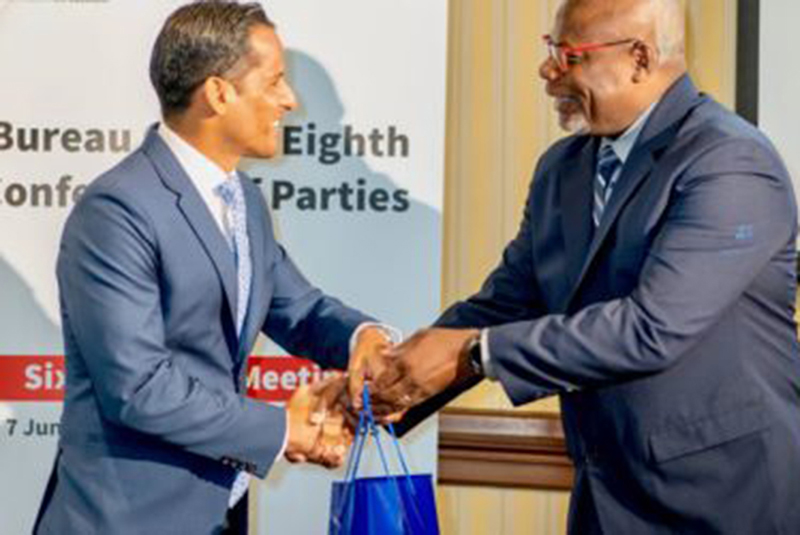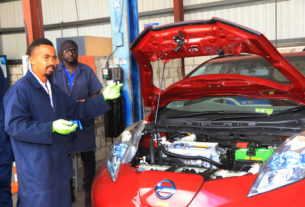BY FABIAN BELGRAVE | JUN 13, 2023
Permanent Secretary in the Ministry of Sports, Charlie Browne (right), presenting Chairman of the COP 8 Bureau, Macos Diaz, with a token of appreciation at the Sixth Formal Meeting of the Bureau of the 8th Conference of Parties (COP 8) to the International Convention Against Doping in Sport. (F. Belgrave/BGIS)
In recognition of the principles of fair play, and the promotion of health, wellbeing and education in sports, Barbados recently hosted the Sixth Formal Meeting of the Bureau of the 8th Conference of Parties (COP 8) to the International Convention Against Doping in Sport.
In his address at the conference, Permanent Secretary in the Ministry of Youth, Sports and Community Empowerment, Charlie Browne, outlined Barbados’ anti-doping efforts.
“Barbados was the first English-speaking country to form a national anti-doping organisation in March 2000. We also trained a large number of doping control officers and promoted anti-doping education within schools and national sports federations.
“In addition, Barbados is the host country for the Caribbean Regional Anti-Doping Office, and was among the first countries to sign the International Convention Against Doping in Sport, in January 2007,” Mr. Browne stated.
He highlighted the importance of ensuring a level playing field for Barbadian athletes, and the need to strengthen anti-doping programmes to maintain fair competition.
Director of the National Sports Council, and Barbados’ representative on UNESCO’s Approval Committee, Neil Murrell, outlined the purpose of the conference, saying it was “threefold”.
Mr. Murrell said an obligatory Approval Committee meeting was held to solidify and approve initiatives, while preparing for presentations for COP 9, in October this year.
He noted that the Approval Committee essentially approves projects from the voluntary fund. “One hundred and ninety-five state parties are able to access the voluntary fund, in terms of financing, and there’s set criteria. The voluntary fund allows countries to be able to put education…[and] policy projects in place,” he explained.
Mr. Murrell said Barbados was the first country in the Caribbean to access funds from the Approval Committee in 2012 and 2017. “US $25,000 was received and was put towards education programmes within schools and national federations,” he stated.
The recent meeting was held at Hilton Barbados Resort.




